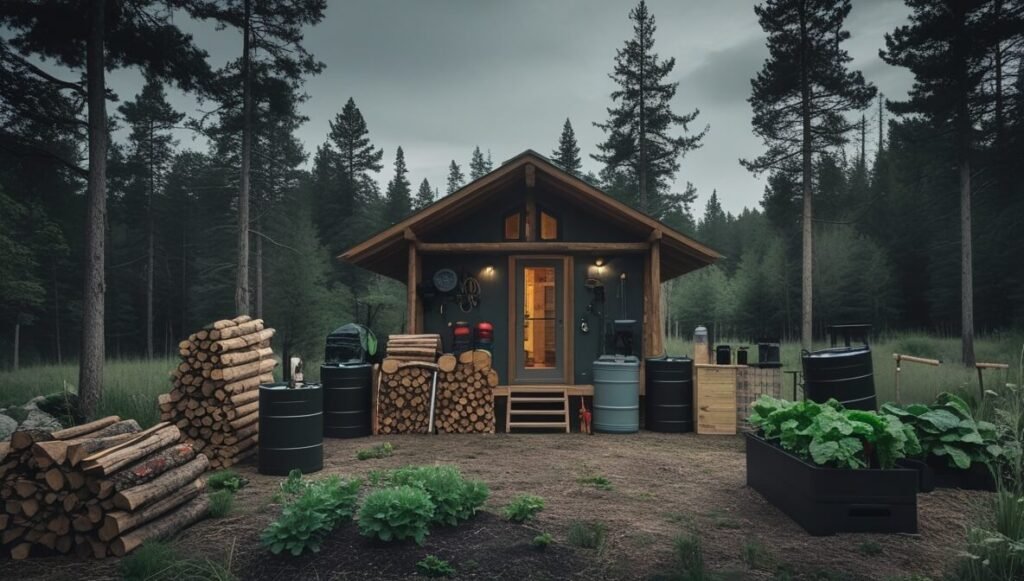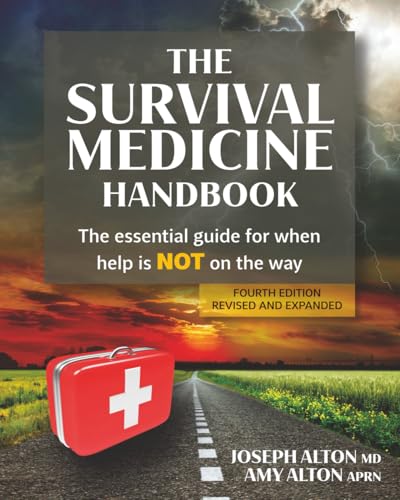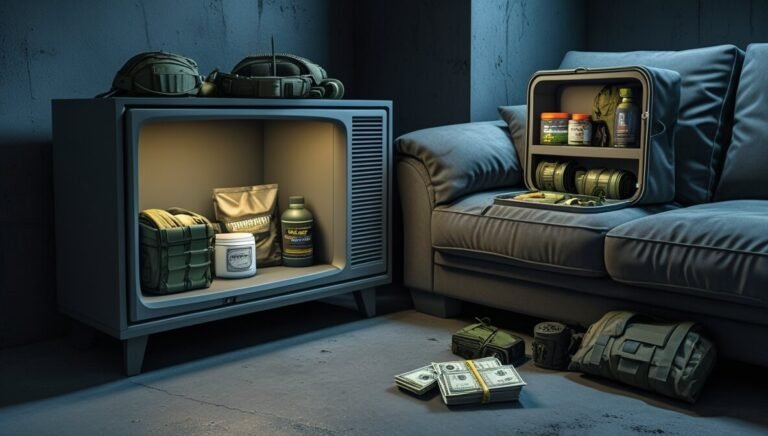Prepping is gaining popularity. More and more people are discovering the value of being ready for anything from power outages to full-blown societal collapse. But behind the excitement of gear hauls and food storage videos lies the reality few talk about: the hard lessons of prepping. It’s not glamorous, it takes time, effort, money, and a lot of uncomfortable self-honesty.
Here are some of the harsh realities every prepper eventually faces:
*Some resources in article are affiliate links. Full disclosure here.

1. Real Preparedness Takes Years
Prepping isn’t a weekend project. Building real resilience, stocking supplies, learning skills, training your body, growing food takes time. The first year is full of excitement and fast wins, but it can take five to ten years before you feel even close to confident. If you want to be ready when the system breaks down, you need to play the long game.
2. It Can Mess With Your Mind
Too much doomscrolling, fear-based content, and worst-case-scenario planning can lead to anxiety or burnout. Especially in the early stages, prepping often starts with consuming tons of overwhelming information. That’s why balance matters. Focus on building, not just fearing. If you spend too long in survival mode, it starts to shape your mindset in unhealthy ways.
3. Discipline Is Non-Negotiable
Animals don’t take days off. Gardens need tending. Fitness declines if ignored. Prepping isn’t just about stashing supplies; it’s a lifestyle that requires consistent effort, rain or shine, sick or tired. People who treat it like a hobby usually burn out or quit. Discipline is what separates fantasy from true readiness.
- 【Leak-Proof Design】Unlike typical rain barrels, our product features an integrated design with a straightforward screw-i…
- 【Durable and Sturdy】Our collapsible rainwater collection system is made from premium three-layer PVC material, providing…
- 【Easy to Store and Transport】 In contrast to bulky traditional wooden barrels, our rain barrel is foldable, making it ea…
4. People Will Judge You
Even now, prepping is often misunderstood. Some will assume you’re paranoid or politically extreme. Others may think you’re wasting time or money. You don’t owe explanations but be prepared for skepticism. For some, it’s best to stay low-key. Discretion is another layer of protection.
5. Secrecy Is Often Necessary
Prepping in silence isn’t about being shady, it’s about safety. Whether it’s keeping your storage quiet, camouflaging your backyard systems, or simply not bragging online, keeping your plans under wraps can prevent conflict, jealousy, or even theft. When things go south, visible resources make you a target.
6. You Might Become a Target Anyway
Speaking of targets: being a prepper comes with risks. Thieves know what to look for. Desperate people notice who’s still calm when others are panicking. If the grid fails, it’s not just about having food, it’s about keeping it. You don’t need to live in fear, but you do need to think about operational security (OPSEC).
- INNOVATIVE BIFACIAL DESIGN: The Jackery SolarSaga 100 W Bifacial Solar Panel, now features solar energy generated, via b…
- Easy Setup & Kickstand Included: The SolarSaga 100 features 2 kickstands, that can be placed firmly on any surface groun…
- Higher Energy Conversion Rate: Covered by monocrystalline silicon solar cells, the solar panel adopts multi-layered cell…
7. It Will Change Your Lifestyle
True prepping means changing how you live. Maybe that means learning to grow food, cutting back on luxuries, spending weekends training instead of relaxing, or moving somewhere safer. It’s not about giving everything up, but it’s definitely about choosing long-term resilience over short-term comfort.
8. You Will Spend Money
While some aspects of prepping can be budget-friendly, true readiness requires investment. Food, water systems, tools, solar gear, first aid supplies, firearms, it adds up fast. And that’s not counting books, training, land improvements, or even relocating. The return on investment? Peace of mind and survival. But yes, it costs.
9. You Can’t Do It Alone
Even the most well-equipped individual has limits. You can’t defend, garden, treat injuries, and fix plumbing all by yourself forever. Whether you build a group, involve your family, or connect with neighbors community matters. Lone wolves don’t last long in long-term crisis.
If a disaster took away the high-technology we take for granted, would you be prepared to keep you family healthy? Could you be an effective medic when hospitals are overcrowded and the ambulance is heading in the other direction? Can you take over if you were the highest medical asset left? Medical preparedness advocates Joe Alton, MD and Amy Alton, NP’s award-winning “Survival Medicine Handbook: A guide for when help is NOT on the way” is now out in its greatly expanded and revised 4th edition!
10. Your Body Is Your Most Important Tool
None of your gear matters if your health is wrecked. Get strong. Get mobile. Get healthy. You don’t need to be a bodybuilder, but basic strength and stamina are critical. Learn to treat wounds, manage chronic issues, and prepare your body like it’s part of your survival kit, because it is.
Final Thoughts
Prepping isn’t romantic. It isn’t about bunkers or bug-out fantasy camps. It’s a hard, often thankless path, but one grounded in the oldest survival instinct: take care of your own. The modern world has sold us convenience and outsourced our independence. Prepping brings it back.
It’s not about fear. It’s about responsibility.
The sooner you start accepting these truths, the sooner you’ll be ready, not just with gear, but with grit.







